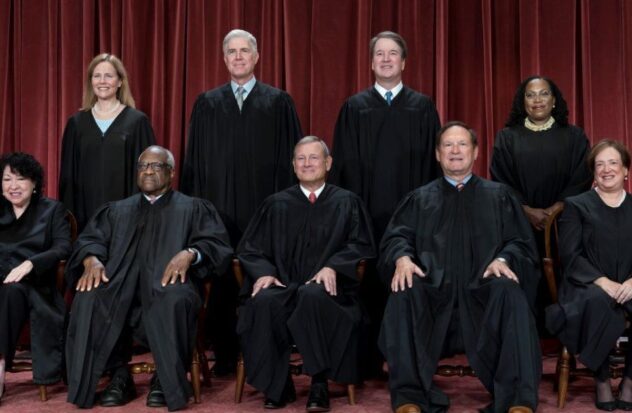WASHINGTON — The Supreme Court of the United States will examine on Thursday whether Donald Trump enjoy immunity criminal as former president, in a case that threatens to shake up the November elections.
The case, which will be presented on Thursday, arises from Trump’s request that the charges against him promoted by Democrats to remove him from the electoral race be dismissed. Lower courts have ruled that he cannot sue over actions that Democratic prosecutors said were allegedly intended to “illegally” interfere with election results.
The former Republican president has been charged in federal court in Washington with alleged conspiracy to overturn the 2020 election, one of four criminal cases he faces. In New York City he began a trial over alleged money payments to a porn star to cover up an alleged sexual encounter.
The Supreme Court is moving more quickly than usual in taking up the case, although not as quickly as special counsel Jack Smith wanted, raising questions about whether there will be time for a trial before the November election if the justices agree. with the lower courts in which Trump can be prosecuted.
Although most constitutional law experts predict a judicial defeat for him, he may have already won a political victory.
No jurisprudence
By accepting the case, the court delayed the start of a trial in which Democrats accuse Trump of conspiring to allegedly alter the results of the 2020 election won by Democrat Joe Biden.
There is no jurisprudence on the matter because until Trump no former tenant of the White House had been accused of a crime.
“As everyone knows, Richard Nixon broke the criminal law,” recalls James Sample, a constitutional law professor at Hofstra University.
“But since he resigned and Gerald Ford pardoned him, we have never had to directly address the notion of criminal proceedings against a former president,” he adds.
Special prosecutor Jack Smith brought the alleged election conspiracy case against Trump, 77, in August and has since pushed for the trial to begin in March in the middle of the election campaign, a strategy drawn up by the Justice Department whose head was appointed by Biden.
Trump’s lawyers filed a flurry of motions to stay the case against the Republican presidential candidate, including one arguing that decisions made by Trump were in office and he enjoys “absolute immunity.”
Two courts, whose judges have been appointed by Democrats, flatly rejected this argument, but the Supreme Court, with a conservative majority, accepted the case for processing.
In a ruling, a lower court ruled that the Constitution does not support this argument. “We cannot accept that the office of the presidency places its former occupants above the law forever,” the judges said.
The issue of debate
When the justices agreed on February 28 to hear the case, they put it this way: “Whether, and to what extent, a former president enjoys presidential immunity from criminal prosecution for conduct allegedly involving official measures during his time in office.”
That is a question the Supreme Court had not had to answer. No former president has ever faced criminal charges, so the court has not had a chance to address the question of whether the president’s unique role means he enjoys immunity from prosecution even after leaving office.
Both sides point to the absence of prior prosecutions to support their arguments. Trump’s lawyers told the court that presidents would lose their independence and be unable to perform their jobs if they knew that their actions in office could lead to criminal charges after their terms end. Smith’s team wrote that the lack of prior criminal charges “underscores the unprecedented nature” of what Trump is accused of.
Source: With information from AFP and AP


